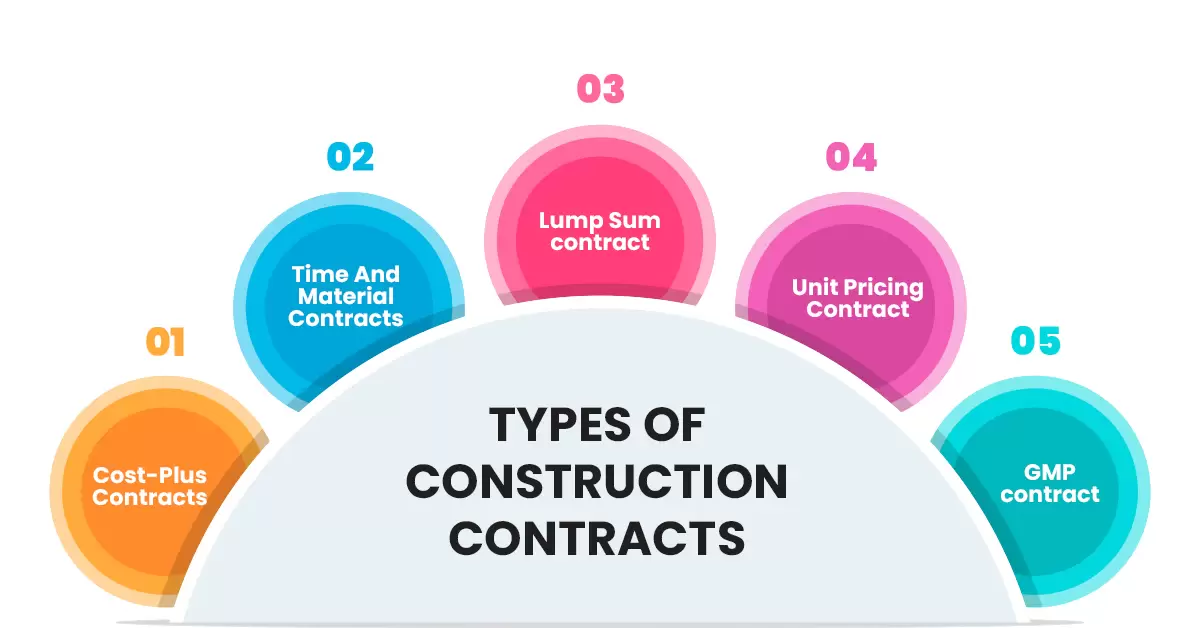A construction contract can be a written or verbal agreement legally binding the service provider and the consumer for consequences and remedies if they are broken. There are many Construction contracts used in the market such as lump sum contracts, unit pricing contracts, cost-plus contracts and many more. Depending on the nature and scope of the project different construction contracts are taken into usage.
Post your Requirement
What are the Legal Rrequirements For Construction Contracts?
In India, there are no specific requirements for construction contracts. As per the Contract Act 1872, agreements that are enforceable by the laws can take the shape of contracts. The parties are free to contract as long they are operating under the principles laid down by the laws.
Some of these principles under which all the contracts are governed in India are as follows :
- The offer and acceptance should be unconditional without any force to enforce the contract.
- The parties should be competent to contract;
- There should be valid consideration; and
- The terms of the contract should be lawful.

What are the different types of construction contracts?
1. Cost-Plus Contracts:-
A Cost-Plus Contract is also known as a cost-reimbursement contract, in this type of contract Direct costs are already covered. However, indirect costs are usually covered on a percentage basis, The percentage may vary depending on the length and scope of the project.
For example, You hire a commercial builder and you want him to build a custom room. Due to its unique architectural feature, they opt for a cost-plus contract with you. Once you get into the contract you will be required to reimburse the builder for the actual Cost of Construction material and labour plus a fixed fee.
|
Pros |
Cons |
|
Even If there is an inflation in the market this type of contract lowers the risk of loss for the contractor. |
The plus in the contract makes the total cost unknown and leaves the owner with uncertainty about the full cost ahead. |
|
There is an Incentive attached to managing the project cost Both for the owner and The contractors. |
Contracts need to be meticulous while tracking expenses to submit for reimbursement. |
Caution for contractors, Contractors must be diligent while maintaining and calculating indirect costs. Transparency is the key to avoiding disputes later on.
Caution for owners, to prevent the issue of being over budget having a clause to set the ceiling for not exceeding budget will reduce the risk of overbudget.
2. Time And Material Contracts:-
Time and material contracts are used to clearly define the scope of the Project. To do so in addition to a daily or hourly rate, it may also include additional expenses.
For example, You hire an interior contractor and want to revamp your house. You both decided to come into a time and material contract, now you have to pay for actual hours worked by the construction crew, as well as the cost of material used in the project such as concrete, steel etc.
|
Pros |
Cons |
|
Provides transparency to both parties about the cost and hours spent on the project. |
The contractor can misuse the hourly rate by intentionally overstepping the timeline. |
| This type of contract provides a quick start not causing delays by spending too much time on detailed upfront planning. | There is a greater reliance on contractor honesty and integrity in reporting hours and expenses. |
Caution for owners, they should articulate well to the contractor about the hourly rate for the project to prevent the contractor from misusing the hourly rate by exceeding the project timeline.
Caution for contractors, they should estimate the project cost accurately avoiding the risk of potential underestimation of expenses.
3. Lump Sum Contract:-
This is a very common type of contract where the user pays all the costs upfront as a single amount for all the work that is to be performed. It is at the discretion of the parties as to whether to include the cost for drawing and details. The contractor under the contract is expected to complete the project within the agreed fixed cost stated in the contract.
For example, You hire an acoustic professional to revamp your house for soundproofing. Consider a situation where you have a fixed budget. Then in this case you can form a lump sum contract that would legally bind the professional to render full service within the budget agreed upon in the contract.
|
Pros |
Cons |
|
Having a lump sum contract compels the builder to carry out work well within the stipulated time frame. Reducing the risk of scope creep. |
Contractors need to be extra careful concerning cost management to avoid the risk of overhead charges taking away the profit. |
|
A lump sum contract sheds your worries about being over budget. |
Owners are at risk of cheap materials being used as a result of contractors trying to cut costs to maximize profit. |
Caution for contractors, they need to be meticulous while deciding the lump sum cost. This will help them to maximize profit and avoid the risk of loss.
Cution for owners, owners should be extra mindful while finalizing the project design and other fixed costs. Cause lump sum contracts from their genesis are very inflexible to changes.
4.Unit Pricing Contract:-
In a unit price contract unit price is fixed for the distinct element of the construction throughout the construction process. A contractor charges the money after multiplying all Unit-Price with the total unit utilized for the service.
For example, if you want to remove debris from a construction site, you hire a contractor who charges for work on a Unit basis, such as the cost of removing per meter square of debris. So, you and the contractor enter into a unit-price contract fixing the per Unit-cost for the services.
|
Pros |
Cons |
|
Can save time for the owner as well as the contractor, by escaping the issue of price restructuring over and again during the process. |
Since the workers are paid for the unit of work delivered there is a reluctance on the part of workers to finish work early |
|
Unit price reduces the cumbersome process of price restructuring during the entire process. |
There is uncertainty regarding the total cost, even though they already know the unit price. |
Caution for owners, they need to draft a contract in such a way that the timeline is maintained and work is finished within a reasonable time.
Caution for contractors, Although reduces overhead administration, there is always a risk of unit price not meeting favourable profit margin, to mitigate this challenge contractors need to be meticulous while suggesting unit price and a clause for a small percentage of unit price can create a financial buffer for contractors.
5. Guranteed Maximum Price Contract (GMP contract):-
The GMP contract guarantees the maximum price to the contractor. It is the maximum price the customer agrees to disperse, notwithstanding the actual cost incurred by the contractor to finish the project. However, If the project ended at a lower-than-projected cost, then the owner may or may not decide to share the savings with the contractor. GMP contracts also stipulate schedules of values documenting trade categories, materials etc.
For example, you contact a carpentry contractor to avail their services for your project. Since you don’t have an idea of the cost that you will incur during the project. You decide to go with the GMP contract which stipulates the maximum price you will pay for the project.
|
Pros |
Cons |
|
Sort your budgeting issue, that will prevent you from going over budget. |
Although a schedule of value is used to reduce confusion it may give rise to disputes over products or services utilized in the project. |
|
Contractors have a clear idea about the maximum budget, which helps them sort out material costs and other direct expenses. |
Product prices may inflate mentioned in the schedule of value leading to a risk of loss for the contractors. |
For contractors, the clause of percentage on maximum would help contractors create a financial buffer for financial risk.
For the owner, advisable to decide the product and service usage beforehand to avoid disputes later.
The type of contract that will be best for your project ultimately depends on the project’s nature and other variables. It involves talking to experts in the field to curate a contract that will match your requirements. Mccoy’s hire-a-pro feature helps you get an expert opinion on the subject matter through a single click. For more details, you can visit our Mccoy’s Hire a Pro webpage or you can also contact us regarding your queries.
FAQ’s
Q-1. Difference between a lump-sum and a cost-plus contract?
A-1. Lump-sum and cost plus are the same to an extent where there is a fixed cost, the distinction comes forward when in the cost-plus contract you are charged extra to replenish indirect costs incurred during the project.
Q-2. Cost-plus contract and GMP contract?
A-2. A cost-plus contract helps the contractor cover the cost of indirect costs, whereas, in a GMP contract, there is a ceiling on the cost that can incurred during the project.
Q-3. What happens if the contractor or owners break the construction contract?
A-3. If the contract agreement follows the guidelines set by the Indian Contract Act, the courts in India can step in to enforce the terms of the agreement.
Q-4. what is requisite for forming a construction contract?
A-4. There are no specific requirements, only the terms of the agreement should be by the laws, such as not exploiting fundamental rights and many more.























Post A Comment